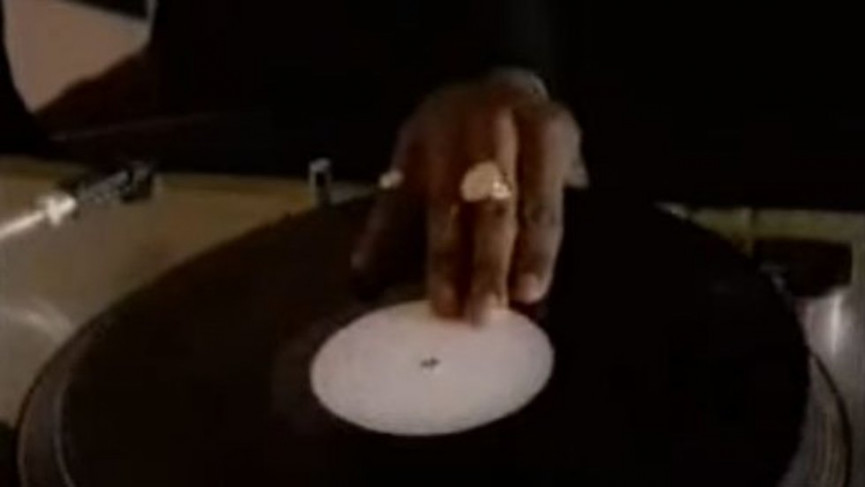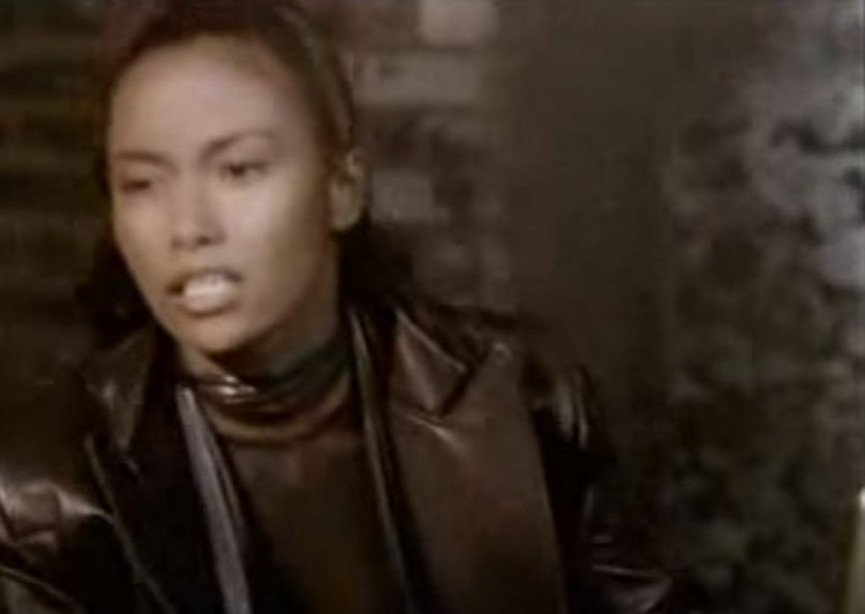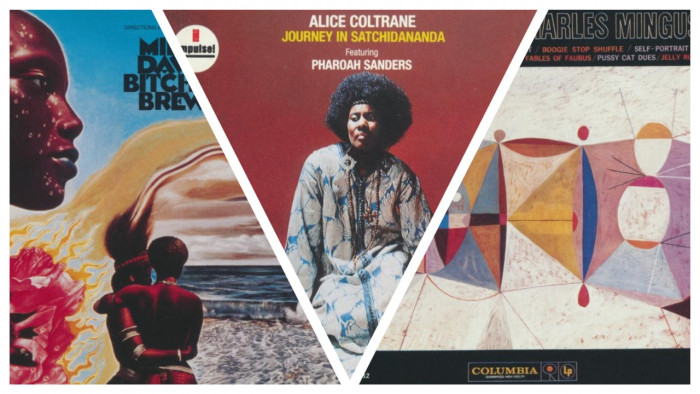Return Of The Mack: understanding the everlasting powers of Mark Morrison’s classic
Dissecting the hidden meanings within his 'comeback song'


WOOOOOOOOOOOOOOOOOOAAHHH-UHoh-uhoh-ohoh. Cuh-mo-oan. Oooh, yea-eh-ey.
For me, very little comes close to Mark Morrison’s opening gambit on Return of the Mack. The rawness of it. The immediacy. The urgency. The batshit pronunciation morphing simple words into something new and weird and strange. They are words as abstract paintings now, on a canvas of supremely danceable new jack swing.
With the possible exception of Luniz’s I’ve Got 5 On It - depending on who you ask, a misogynist earworm about calling dibs on a woman or a catchy ode to the art of fisting - or R. Kelly’s creepy masterpiece Ignition (Remix), there’s rarely been a song so guaranteed to make everyone stop what they’re doing at 4am and start dancing. I wanted to find out why Return Of The Mack refused to die.
To prepare for this piece I listened to the song - the 3:30-long radio edit (above), the 3:01-long a capella version, the 7:22-long C & J Street mix (below) with the haunting tinkled-piano introduction - at least seventy times in the past thirty-six hours. I must’ve heard it hundreds of times in my life before that. I don’t think I’ve ever been in an Uber and not requested the aux chord to play it. On each spin alluring secrets poured out of it; an endless, mysterious font of funk. I learned how to play the song backwards, and I listened to it again and again desperately hoping to decipher its myriad codes still further.
I brushed my teeth singing it, I awoke thinking of it. I ate humming it, I walked dancing to it. Late neurologist Oliver Sacks wrote in the book Musicophilia that such obsessions are obvious signs of, “the overwhelming, and at times, helpless, sensitivity of our brains to music”. My brain was overwhelmed, Oliver. Helpless. I was, it would appear, sensitive as fuck to Mark Morrison.
To unlock the infinite appeal of the party Spotify-playlist mainstay, I set about breaking it down.
The construction of the song is deceptively complex. There’s the minimalist melody, the coruscating siren that signals the start of the vocals, the bass-drums taken from the outro of Tom Tom Club’s classic Genius Of Love, the snare snaffled off a live version of electro weirdo Cerrone’s Rocket In The Pocket, the “HUR” and “HAH” call-and-response of The Treacherous Three’s Feel The Heartbeat. Combine all that with Morrison’s knack for unfathomable vocal tics and you’ve got a track that’s gonna make people want to put down their bottle of overpriced continental lager and get dancing.
But perhaps the lyrics give the best indication of Morrison’s true modus operandi.
Well, I tried to tell you so
Yes, I did
But I guess you didn't know
As the saddest story goes
Baby, now I got the flow
‘cause I knew it from the start (HUR--HAH)
Baby, when you broke my heart
That I had to come again
And to show you that I'm with
What is Mark Morrison with? We never find out for sure, but it is alluded to that the person Morrison is addressing definitely knows what is up. As Genius.com user and apparent cosmic detective RebelToUhmerica writes, “When she screwed him over, Mark knew that he needed to go back into his former way of living, being The Mack.”

So, I'm back up in the game (watch my flow*)
Running things to keep my swing (all night long)
Letting all the people know
That I'm back to run the show
Cause what you did you know was wrong
And all the nasty things you've done (Oh-oh-oh-oh)
So baby listen carefully while I sing my comeback song
The Mack. What are the qualities of The Mack? The Mack contains multitudes. He is at once strong and vulnerable. He’s confident enough to address you directly as ‘baby’ but fragile enough to implore you to please ‘listen carefully’. He shows a thrilling aptitude for making a comeback (even if, we, as a listener, have no actual idea that he went anywhere) as well as openly admitting to expressing sadness via crying his little Mark Morrison eyes out.
You liiiied to me
All those times I said that I loved you
You liiiied to me
Yes I tried, yes I triiied
You liiiied to me
Even though you know I'd die for you
You liiiied to me
Yes I cried, yes I cri-i-ied
Yes, despite your guide’s steely demeanour and penchant for big, bad leather hats, he is someone who cries - no, someone who cri-i-ies - especially when lied to. Picture now, if you can, Mark Morrison in his early-twenties: A pair of handcuffs dangle loosely from his fingers just like on the cover of his hit single, in his customary black wraparound shades, in a long black leather jacket - like Blade from the movie series Blade - and his black crocodile skin boots. He is dressed, truly as The Mack - but Mark Morrison has been lied to. His inner The Mack calcifies, it atrophies. It becomes brittle, like a dry twig. It snaps. He starts to sob - coughing, wailing, sadness sometimes spasming the whole of his extremely leather-clad upper body.

You liiiied to me
Cause she said she'd never turn on me
You liiiied to me
But you did**, but you did
You liiiied to me
All this pain you said I'd never feel
You liiiied to me
But I dooo, but I dooo, dooo, dooo
This is decidedly un-The Mack behaviour. Etymological swapshop Urban Dictionary’s ProffesorCharm describes the term “The Mack” in chillingly clinical terms: “Suave and attractive. Exemplary”. But in this last definition - “exemplary” - perhaps Mark Morrison, at odds with his self-imposed exile, had remained The Mack all along. Maybe he liiiied to us. Maybe, all this time, he had liiiied to himself.
Haven’t we all been guilty of holding ourselves too emotionally accountable? Haven’t we all tried escape into our shell after being hurt? That was Mark Morrison - until he came to terms with his situation, his alter-ego had to stay relegated. But then something snaps him out of his stupor and the song transforms into a towering obelisk to the endless capacity of man’s will to survive, typified by the song’s insistent chorus.
Return of the Mack (there it is)
Return of the Mack (come on)
Return of the Mack (oh my God)
You know that I'll be back (here I am)
Return of the Mack (once again)
Return of the Mack (top of the world)
Return of the Mack (watch my flow)
You know that I'll be back (here I go)

In the radio edit of the song, the words ‘return of the mack’ are sung no less than twenty-four times in three-and-a-half minutes. The effect is claustrophobic. It feels like he’s desperately trying to convince himself that he is who he once was - by God, he is The fucking Mack, man - and the chorus turns into a hypnotic mantra.
Despite being more than twice as long, the extended edit, the C&J Mix with all that piano, sees the title sung only seven extra times and yet it’s so much more effective and affecting. Again the song shifts from a meaty tale of persistent funkiness guiding a man’s way to personal redemption, and into an elegiac ballad of frail masculine ego.
Take the extended edit’s chorus backing vocal. Read alone they tell a tale of self-esteem finally being understood - ‘There it is! Come on! Oh my god’, he says, jubilant at realising his returned sense of being. “Once again! Top of the world! Watch my flow!” - but then…
“Mark…” whispers a woman’s voice at 2:25. “Stop lying about your big break… I need a real man… Stop bringing me down!” WHO SAYS THIS? It comes out of nowhere. Mark Morrison barely even references what just happened, merely internalising the slight, and the tone turns darker…
Return of the Mack (there it is)
Return of the Mack (hold on)
Return of the Mack (don't you know)
You know that I'll be back, here I go
Return of the Mack (oh, little girl)
Return of the Mack (once my pearl)
Return of the Mack (up and down)
You know that I'll be back (round and round)
While in the previous chorus he is triumphant, the pain in his wails and the backing vocal now tell another story. The Mack’s The Mackness is here for now, once again, but for how long? He cannot bring himself to move on, doomed to infatuate over his - presumably adult - former lover, doomed to constantly dredge up the past. He is doomed to go round and round. The question, eternally, remains: once damaged, can anyone - you, me, The Mack - ever be quite so strong?
You think back to the mysterious woman’s voice - “Mark… Stop lying about your big break…” - and another question emerges: What if the person Mark has been hurt by is… Bloody hell. Look at the video: The woman who enters the room to deliver these lines - tall, beautiful, dressed in a long blac… FUCKING HELL SHE’S DRESSED AS MARK MORRISON. It was Mark Morrison who hurt Mark Morrison all those years ago.

It’s little wonder that the song still resonates to this day. Even besides the song’s perfect tempo - quick enough to party to and slow enough to drunkenly sway through - have such deep, personal questions ever been more en vogue? And have they ever been more catchily sung? You already know the answer.
For this song to come in March 1996 - twenty years ago, almost to the month, at the peak of gangsta rap, of tough guy posturing - is nothing short of monumental. That it packs so much into a soundtrack so funky and so, at once, of-its-time and timeless, allowing you ingest its message without realising - like a sickly dog’s pill hidden inside a blob of delicious peanut butter - is a testament to the insurmountable courage of true art and to the indomitable spirit of a dancefloor classic.
Now, pass me that aux.
* Who the fuck knows what he actually said in this one? Answers in the comments, please.
** The pronunciation of this “Do” is particularly unfathomable, and too distracting to write phonetically but here goes - “But you deeeeeuurhh, but you deeurgghh”.


![3. Star Wars: The Skywalker Saga Complete Box Set [Blu-ray]](https://www.shortlist.com/media/imager/202004/47769-product_widget.large.png)




















